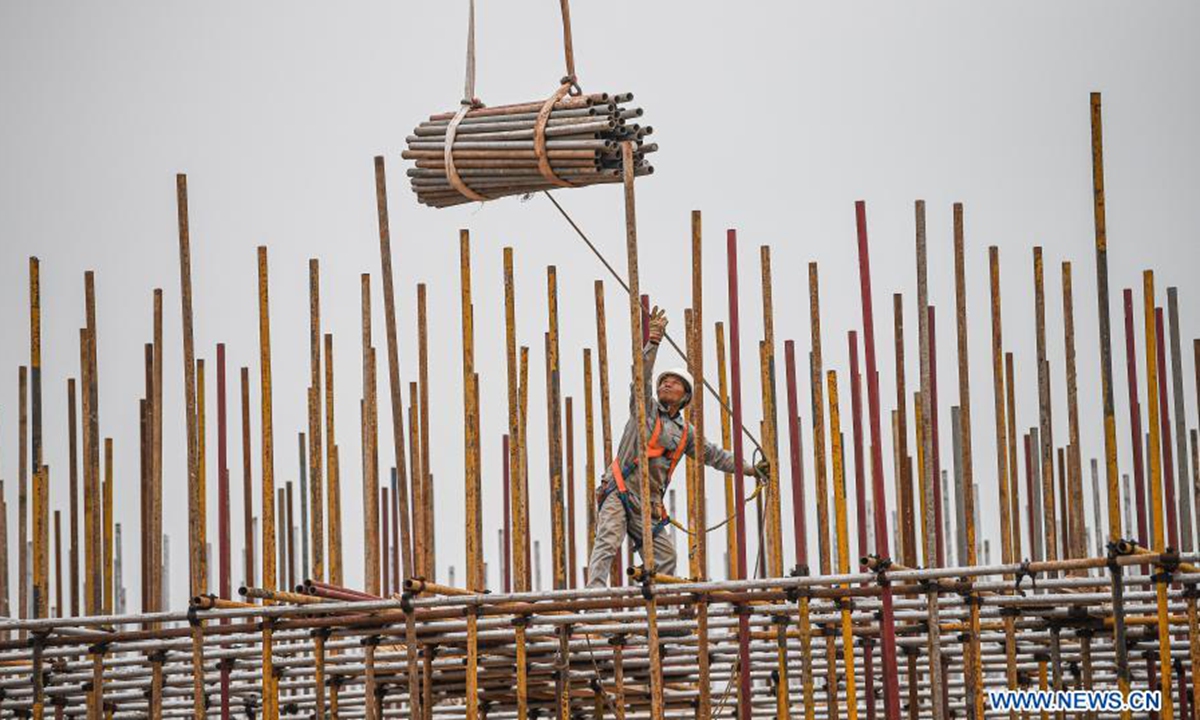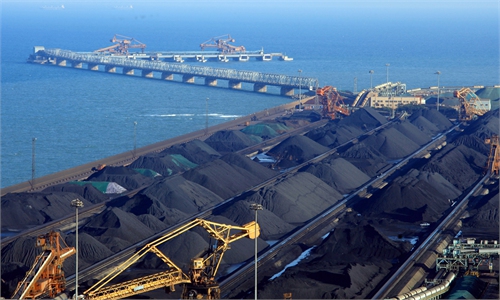
A worker is seen at a Sinopec construction site in Yangpu Economic Development Zone, south China's Hainan Province, March 23, 2021. The 1,000 KTA Ethylene and Oil Refinery Reconstruction & Extension Project of Sinopec Hainan Refining & Chemical Co., Ltd., located in Yangpu Economic Development Zone, a key park of Hainan Free Trade Port, is progressing in an orderly manner recently. (Xinhua/Pu Xiaoxu)
China is not facing a two-pronged economic rebound or the K-shaped rebound from the Covid-19 crisis, but the economy is on an overall upward trend, said Xiao Gang, a member of the National Committee of the Chinese People's Political Consultative Conference (CPPCC) and former head of the country's securities regulatory commission (CSRC), at the 2021 Tsinghua PBCSF Global Finance Forum on Saturday.
He pointed out that since 2020, China has achieved a decisive victory in its war against the coronavirus epidemic, and has taken the lead as the only major economy in the world to have achieved a positive GDP growth.
Entering 2021, China's economic growth has been further strengthened, he said.
His comments echo recent debates about a V- or K-shaped recovery among the country's economists, with the K recovery pointing to rich people recovering more quickly from the pandemic-induced recession, while lower-income groups suffering disproportionately the impact of the public health crisis.
Xiao believes that the uneven economic development is caused by different approaches in response to the disease, including fiscal and monetary policy stimulus. Some existing problems, such as the rise of the digital economy, changing industrial structures, competitive intensity of industries, and the aging population, have made economic differentiation more obvious.
He believes it is important to have the market play the role of resource allocation within any economy, and that more targeted and structural policy tools are needed for those that are not suitable for market intervention.
"We need to respect the laws of economic development, and fully implement the pivotal tasks set out in the country's 14th Five-Year Plan," Xiao said.

